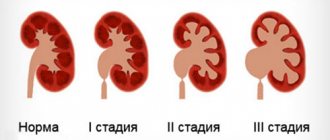Depression during pregnancy: symptoms, causes, treatment
Pregnancy is an important event in the life of every woman. Sometimes the period of waiting for a baby is overshadowed by anxiety, fears, uncertainty, apathy, and irritability.
Sudden mood swings, excessive emotionality and tearfulness, various anxieties and experiences are not unusual during pregnancy.
This is due to the upcoming changes in the life of a woman and the family as a whole; hormonal levels also have a great influence. However, one should distinguish between an unstable emotional state and, in fact, depression. Depression is a severe mental disorder. It is characterized by apathy, low mood and the inability to experience joy, motor retardation and thinking disorders.
Symptoms of prenatal depression
Depression in women during pregnancy is characterized by a group of physiological and mental symptoms:
- prolonged feeling of depression, apathy, indifference;
- feelings of hopelessness and a negative view of the future;
- chronic fatigue, weakness, loss of strength;
- irritability, tearfulness;
- lack of self-confidence, difficulties in making decisions, constant feelings of guilt;
- feelings of self-hatred, suicidal thoughts;
- loss of interest in life, lack of joy;
- appetite disturbances (constant feeling of hunger or lack of appetite);
- sleep disorders (insomnia, drowsiness, difficulty falling asleep);
- fear of leaving the house or other fears.
At different stages of pregnancy, individual signs of depressive disorder may appear, and if they are short-term, then there is no reason for concern. Emotional participation, care and support of loved ones will help the expectant mother survive the mild blues.
However, if symptoms of depression persist for a long time, you should seek help from a psychotherapist.
Causes of Prenatal Depression
The causes of depression during pregnancy can be various factors related to a woman’s life, her personal and physiological characteristics. Most often, depression develops in women who are anxious, suspicious, and have an unstable nervous system.
The development of depressive disorder in an expectant mother is influenced by:
- severe stress due to an unplanned pregnancy;
- complications during pregnancy;
- unfavorable social situation (difficult emotional situation at home, lack of housing, lack of money, insufficient support or its absence from the husband and close relatives, etc.);
- unwanted pregnancy;
- long-term infertility treatment, frequent cases of miscarriage, fear of not being able to carry a child to term;
- a history of mental disorders in the woman or her relatives;
- personal characteristics (increased anxiety, fears, self-doubt, etc.);
- suffered a psychological shock (death of a loved one, divorce, etc.)
Features of the course of depression at different stages of pregnancy
Pregnancy, especially the first, actualizes many unconscious internal conflicts. During pregnancy, a woman goes through several stages of awareness of her new position. During this period, various external and internal factors influence the emotional state of a woman.
Depression in the first trimester of pregnancy
Depression in the early stages of pregnancy may be due to the fact that the woman is not ready for changes in her life. An unplanned pregnancy causes a lot of anxiety, especially if the woman is not sure that she wants to keep the child.
Another common situation when a woman could not get pregnant for a long time was cases of miscarriage or frozen pregnancy. Now that the long-awaited pregnancy has arrived, the woman is overly worried and afraid that something will happen to the child. A woman is afraid of everything because she is not confident in her ability to bear a healthy child. Being in constant fear and anxiety is stressful and has a negative impact on a woman’s psycho-emotional state, which can contribute to the development of depressive disorder.
At this stage, timely medical examinations and reassurance from the attending physician that the pregnancy is progressing normally can ease anxiety. If the symptoms of depression do not go away, and the condition worsens, you need to seek help from a psychologist or psychotherapist.
Depression in the second trimester of pregnancy
In the second trimester, signs of pregnancy become more noticeable to the woman and others. This can cause various experiences, which are most often unconscious.
The inevitability of future changes associated with the birth of a child can cause sadness, sadness, and depression. The baby's first movements clearly demonstrate that the woman will soon become a mother. The need to go on maternity leave can be alarming if a woman is not ready to leave her career for a long time and devote herself entirely to the baby. Strong women who occupy an active masculine position may find it difficult to accept forced dependence on their husbands, which is inevitable during pregnancy and breastfeeding.
With the increase in pregnancy and the first movements of the baby, the woman discovers that although the child is still part of her, he is already a separate human being with his own life, which she cannot control. When a woman realizes that the child will eventually become part of the outside world, an unconscious fear of separation awakens in her. Women's unresolved internal conflicts come to life especially strongly during this period, which can lead to depressive disorder.
Depression in the third trimester of pregnancy
As the expected date of birth approaches, a woman thinks more and more about the upcoming event. Various fears become aggravated: fear of childbirth and possible complications, whether the child will be born healthy, whether he will be harmed during childbirth.
Fears of not being able to cope with the role of a mother and not being able to take good care of the baby also intensify. Such experiences before childbirth negatively affect a woman’s emotional state and can lead to depression.
Treatment of depression during pregnancy
It should be remembered that depression is a serious mental disorder and the treatment of this disease should be carried out by specialists. A psychotherapist or psychiatrist will provide the necessary medication if the condition is critical. A psychologist will provide psychological support, help you cope with difficult experiences, regain the lost ability to enjoy life and find joy in the period of preparation for motherhood.
Psychological help and support is especially necessary for women suffering from depression during pregnancy. After all, the psychological well-being of a mother is the key to giving birth to a healthy baby.
Source: https://www.granisoznaniya.ru/stati/depressiya-vo-vremya-beremennosti-simptomy-prichiny-lechenie/
Postpartum depression: when is it time to sound the alarm?
Author:
Bondar Yulia
5 minutes
2639
Anxiety and worry while a woman is preparing to become a mother are completely natural emotions. But then the long-awaited event happened, everything is fine with the child and mother, but for some reason the happy mother does not look or feel happy. Moreover, her emotional state is getting worse every day, although there may be no objective reasons for the loss of strength and mood.
What's happening? Fatigue and lack of sleep have accumulated? Is the mother’s hyperanxiety worsened due to the baby’s colic and poor sleep? Is my mother losing strength due to lack of help? There may be several external reasons, but the most important reason for the mother’s condition may be that she has postpartum depression.
What is postpartum depression
Postpartum depression is a mental disorder. It is formed exclusively in the postpartum period, and consists of a constant depressed mood, poor health, increased anxiety and the inability to cope with one’s responsibilities, and in the most severe cases, even a loss of interest in life. This type of depression has a direct connection with drastic social, hormonal and psychological changes in a woman’s life.
Postpartum depression has been shown to affect one in five mothers and typically begins within the first month after giving birth, although it can occur at any time during the first year of a baby's life. However, many women do not realize that they have postpartum depression because it can develop gradually and often goes unnoticed, and the woman does not receive the necessary medical care.
The duration of the disorder is different for everyone. In the absence of a predisposition to postpartum depression, even without the timely necessary psychological and medical assistance, the disease can completely go away within a few months or even weeks. If a woman previously suffered from bipolar personality disorder, cyclothymia or another emotional disorder, or had a family history, depression can be severe. The same thing can happen under stress. Symptoms of the disease can persist for a long time (up to several years) or become chronic (dysthymia), accompanied by periodic relapses.
Provoking factors
In addition to physiological factors, such as a genetic predisposition to depressive disorders and sudden changes in hormonal levels, there are a large number of social, economic and psychological factors that can trigger the onset of depression.
This could be an unwanted or difficult pregnancy. Problems with breastfeeding also greatly affect the psycho-emotional state of a young mother. Conflicts with the child’s father (infidelity, quarrels, scandals, separation) are factors that can trigger the onset of depression and worsen the course of an existing disorder. A disturbed nervous system of the expectant mother even before the baby is born is also a serious risk factor. Excessive physical activity, financial problems, moral exhaustion and lack of basic outside help - all this can become the impetus for a mental disorder.
Symptoms of postpartum depression
Photo: Shutterstock/FOTODOM
You can distinguish postpartum depression from the usual fatigue and poor health of the mother of a small child by the following signs.
- A woman regularly complains of suffering due to loneliness and excessive fatigue.
- Tearfulness, sudden mood swings, uncontrollable outbursts of anger.
- Panic fear about the condition and health of the newborn, reaching the point of panic.
- Constant feeling of guilt due to the most insignificant failure.
- Suicidal thoughts, dark vision of the future.
- Feelings of panic and anxiety, accompanied by palpitations, loss of appetite, regular headaches, insomnia.
- An irresistible desire to commit actions that are senseless, in the opinion of others.
- Constant loss of strength, inability to take care of the child and herself.
- Sleep disorders, eating behavior.
- If you observe more than one symptom from this list at once, this is a reason to immediately consult a doctor. Postpartum depression can occur in quite severe forms, but with timely help this disease can be completely cured quite quickly.
Postpartum depression can affect fathers too
It turns out that not only mothers of newborns can be susceptible to postpartum depression. A January 2017 study from UT Southwestern Medical Center found that one in 10 new fathers experience a depressive disorder similar to postpartum depression in women. Its symptoms include, as in women, mood swings, loss of energy, decreased libido, increased anxiety, sleep disorders and/or eating behavior. It is alarming that men, due to their less emotionality and greater restraint, may not realize that they need help. The depressed state of fathers also has a very bad effect on the psychological climate in the family, as does the depression of mothers; in addition, as a study conducted in the United States in 1990-2000 showed, almost 40% of depressed fathers may beat their children.
The good news about fathers is that having a healthy dad-baby relationship significantly reduces the mother's chance of developing postpartum depression.
Postpartum depression worsened by media
Photo: Shutterstock/FOTODOM
In addition to the factors already listed that can destabilize a woman’s mental state after childbirth, there is one more, and its influence should not be underestimated. According to a study conducted by scientists from the University of Illinois, USA, unrealistic images of happy pregnant women and mothers of babies in the media can also become a factor provoking depression after childbirth. Nearly 46% of women surveyed indicated that exposure to unrealistic images and messages on social media contributed to a variety of negative emotions in them, such as body disgust, disappointment, depressive thoughts and even suicidal thoughts. According to those surveyed, all this was provoked by how quickly celebrities lost weight after giving birth, as well as by their beautiful appearance during and after pregnancy.
Other studies have shown that postpartum depression can be exacerbated by excessively painful labor, sleep deprivation, postpartum urinary incontinence, cesarean section, and domestic violence.
What to do?
If you find any of the listed signs of postpartum depression in yourself or your loved ones, you should immediately consult a doctor - a psychiatrist or psychotherapist. If depression is left untreated, in some cases it can lead to very bad consequences for both mothers and their children.
Trying to help a young mother on your own is not recommended, as in some cases medication and psychotherapy are required. Self-medication can only aggravate the current situation, which will lead to the development of postpartum psychosis.
What will the doctor prescribe?
Photo: Shutterstock/FOTODOM
Depending on the type and complexity, depression is treated either on an outpatient basis or in an inpatient setting. The decision on the latter option is made solely on the basis of identifying the risk of suicidal tendencies and the severity of the general condition. Modern medicine offers several ways to treat postpartum depression.
- Psychotherapy (group or individual).
- Hormonal therapy. Estrogen injections are designed to replenish the content of this hormone, which has decreased after childbirth. The result of this is a weakening of the severity of some symptoms of depression in women during the postpartum period.
- Antidepressants or tranquilizers. The decision to prescribe them can be made solely by the doctor. It should be remembered that the vast majority of these drugs are not compatible with breastfeeding.
- The prescription of neuroleptics (these are drugs responsible for reducing motor activity and obvious psychotic symptoms) is carried out in the most severe cases, and only in a hospital under the supervision of a doctor.
In addition, the symptoms of postpartum depression can be alleviated by receiving psychological help from relatives and friends, helping the mother around the house and with the child, providing the opportunity to be alone and quiet - or, conversely, the opportunity to go somewhere out of the house without the child. All this can be provided by the loved ones of a woman suffering from postpartum depression.
Cost of services
| CONSULTATIONS OF SPECIALISTS | |
| Initial consultation with a psychiatrist (60 min.) | 3,500 rub. |
| Repeated consultation | 2,500 rub. |
| Consultation with a psychiatrist-narcologist (60 min.) | 3,500 rub. |
| Consultation with a psychologist | 2,500 rub. |
| Consultation with Gromova E.V. (50 minutes) | 12,000 rub. |
| PSYCHOTHERAPY | |
| Psychotherapy (session) | 6,500 rub. |
| Psychotherapy (5 sessions) | 25,000 rub. |
| Psychotherapy (10 sessions) | 48,000 rub. |
| Group psychotherapy (3-7 people) | 3,500 rub. |
| Hypnosis (1 session) | 10,000 rub. |
| Hypnotherapy course (5 sessions) | 45,000 rub. |
| Psychotherapy session with E.V. Gromova (50 minutes) | 12,000 rub. |
| TREATMENT IN A HOSPITAL | |
| Ward for 4 persons | 8,500 rub./day |
| Ward for 3 persons | 9,500 rub./day |
| Ward for 2 persons | 11,500 rub./day |
| Ward for 2 persons Comfort | 12,500 rub./day |
| Ward 1 bed VIP | 16,500 rub./day |
This list does not contain all prices for services provided by our clinic. The full price list can be found on the “Prices” , or by calling: 8(969)060-93-93. Initial consultation is FREE!










